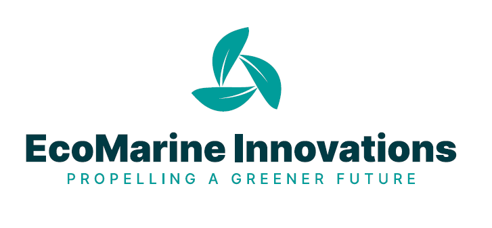A second series of cavitation tests have confirmed EcoMarine Innovations’ Holy Boss Cap (HBC) propeller hub improves fuel efficiency by up to 5% at full scale, as shipowners and propeller manufacturers vie for licensing agreements.
Full scale CFD simulation of a ship operating at a design speed of 16.46 knots and turning a controllable pitch propeller with four different boss-cap models, found the Holy Boss Cap the more efficient solution, outperforming existing hubs by a factor of 2.5 or more.
According to the trials report, researchers concluded propeller hub vortex “cavitation on the base boss cap was significantly eliminated by the holes on the calculations with the Holy Boss attached models. It is clearly seen that vortex [cavitation] is disappearing after it interacts with holes.”
Test results mean that the simple-to-manufacture and install propeller hub can be retrofitted to large ocean-going ships as a way of contributing to shipowner ESG goals to reduce carbon emissions.
Holy Boss Cap inventor Dr. Batuhan Aktas, a Chancellor’s Fellow in the Naval Architecture, Ocean and Marine Engineering Department at the University of Strathclyde, and future CEO of EcoMarine Innovations – a prospect spin out company of the University, said: “Our approach to improving propeller efficiency is unique in both design and application. It diverges from traditional methods that typically use propeller hub fins to achieve similar outcomes. We are receiving a tremendous amount of industry interest.”
According to Dr. Aktas, EcoMarine Innovations is currently in negotiations with several propeller manufacturers for licensing opportunities and has also held meetings with a Turkish ship operator. A pilot installation on a Kamsarmax vessel is planned in the second half of 2024.
A key differentiating aspect of the Holy Boss Cap is the emphasis on cost-effectiveness and ease of manufacturing. Unlike conventional propeller boss cap fins (PBCF) which are complex and expensive to produce, the Holy Boss Cap offers a simpler and more economical solution without compromising on efficiency or performance. Its design allows for significant reductions in fuel consumption and emissions, addressing urgent needs within the maritime industry for sustainability and compliance with international environmental regulations.
Ship maintenance costs can also be reduced as propeller hub vortex cavitation is the primary source of rudder cavitation and damage.
In addition to the reduced fuel consumption and carbon emissions, another positive environmental benefit of the HBC is that it reduces underwater radiated noise and vibration levels, which impacts the migratory, mating and feeding habits of marine mammals.
“Our most recent validation at one of Europe’s leading Hydrodynamic Research Centres demonstrates a vast improvement in propeller efficiency and recognises the fleet wide potential of the Holy Boss Cap in helping shipowners meet current and future emissions abatement legislation,” he said.

Editors’ Notes
The research leading to the development of the Holy Boss Cap propeller hub technology was conducted by a team of dedicated researchers affiliated with the Naval Architecture, Ocean and Marine Engineering Department at the University of Strathclyde, led by Dr. Batuhan Aktas, a Chancellor’s Fellow renowned for his expertise in marine engineering. The University of Strathclyde is deeply involved in fostering innovation and technology transfer, evidenced by its support for spin-out companies. In line with this commitment, EcoMarine Innovations, a prospective spin-out company, has been established to commercialize the groundbreaking technology emerging from this research endeavor. Dr. Aktas, in addition to his academic role, is poised to assume the position of CEO at EcoMarine Innovations, underscoring the symbiotic relationship between academic research and entrepreneurial ventures aimed at driving real-world impact and sustainability within the maritime industry.
ABOUT ECOMARINE INNOVATIONS
EcoMarine Innovations is a pioneering ship research and development group operating within the University of Strathclyde, Glasgow, Scotland. Dedicated to enhancing maritime efficiency and sustainability, its cutting-edge propulsion technology is designed to reduce fuel consumption and emissions, helping the shipping industry meet environmental targets while cutting operational costs.
With expertise in marine engineering, naval architecture and environmental science, EcoMarine Innovations is committed to delivering solutions that are not only innovative but also practical and easy to adopt, ensuring a greener future for our oceans.

